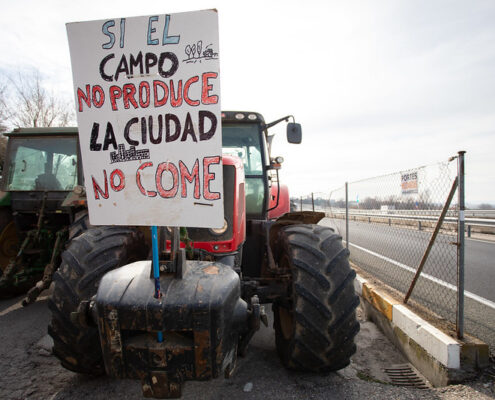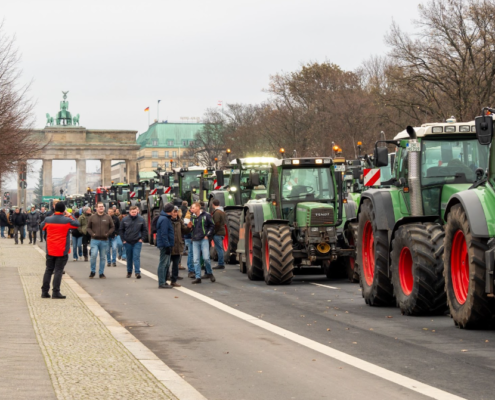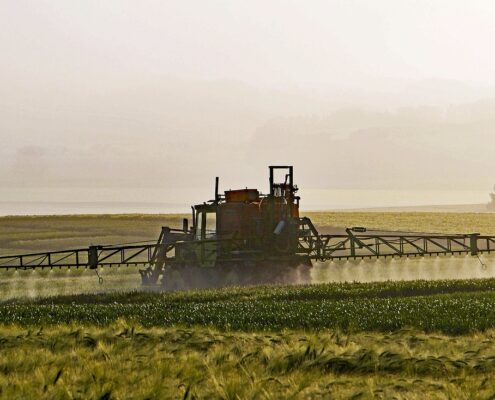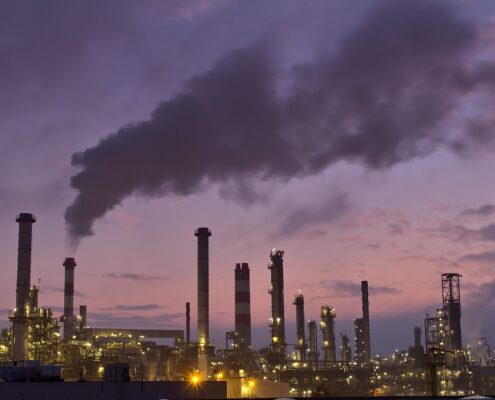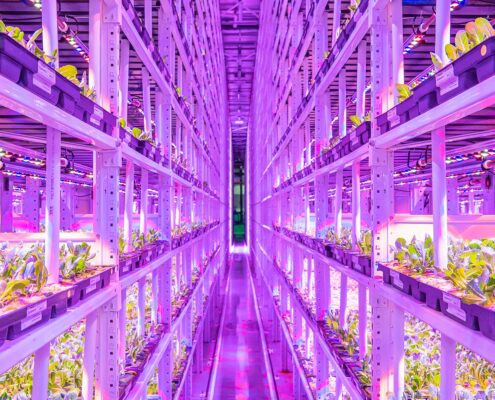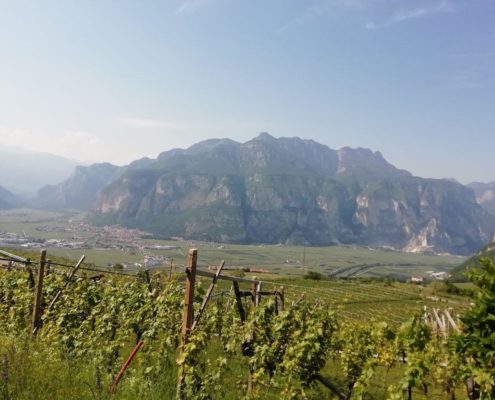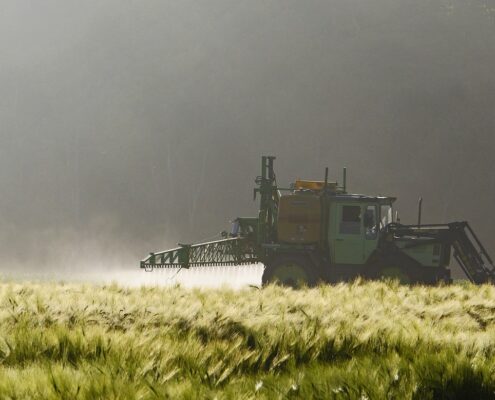 https://greenmarked.it/wp-content/uploads/2024/06/agriculture-2361978_1280.jpg
779
1280
Etienne Hoekstra
https://greenmarked.it/wp-content/uploads/2022/01/LOGO-GREENMARKED-SITO-600x600.png
Etienne Hoekstra2024-06-28 18:34:132024-06-29 10:24:20Balancing Agriculture and Sustainability in the EU
https://greenmarked.it/wp-content/uploads/2024/06/agriculture-2361978_1280.jpg
779
1280
Etienne Hoekstra
https://greenmarked.it/wp-content/uploads/2022/01/LOGO-GREENMARKED-SITO-600x600.png
Etienne Hoekstra2024-06-28 18:34:132024-06-29 10:24:20Balancing Agriculture and Sustainability in the EUFebruary 20, 2024

Farmers from all over the European Union (EU) have filled their countries’ streets, seemingly tired of their situation, which they said, is being abandoned by institutions and forgotten by the rest of the people [1]. Protests began a few months ago in Germany, The Netherlands, and France, and now they have come to Spain [2]. There are different groups inside the protests, each with its own claims, but there are several common points among them [3]. Let us analyze some of them, focusing on the most repeated ones, and what they could come to be.
One of the main complaints is about regulating the unfair competition arising from non-EU products. Regulations applied to farm production in Europe are quite strict if compared to those that may exist in other countries.
In Spain, we have gotten used to seeing two different sets of boxes in a supermarket, one with a label for oranges from Spain, and another one from South Africans, as if it were completely normal. It is not weird to check canned food and realize that asparagus come from Peru, or that kiwis come from New Zealand. The problem is that those products generally have less restrictive phytosanitary standards than the ones the EU demands from their producers, making them lower the prices and generating unfair competition.
It makes no sense to ask European farmers more efforts to have greater quality products when foreign products are allowed to get inside the market and displace local production due to more affordable pricing. Policies that regulate this market are necessary. If something does not have enough quality to be produced here, why does it have the quality to be consumed?
Along with this idea of reinforcing controls, there is another proposal to establish a system with double labeling in products, to let it be clear where the product comes from and how much it costs in origin. Another great problem in the Spanish field is the difference between the price the producer sells and the price consumers are acquiring products. This double labelling idea would help consumers choose proximity products, and on top of that, choose products that would mean fair prices to farmers. Besides being positive in that sense, it also would mean that consumers could do some social and environmental awareness exercises, which are also needed nowadays.
Another claim is related to climate change. Spain is a country from the south of Europe, meaning it is among the countries that mostly suffer global warming. Spanish farmers demand more protection to overcome the situation, such as a political agreement for water management. The Iberian Peninsula suffers more and more water scarcity each year. Rising temperatures, diminishing winter precipitations in mountains, and unpredictable rain episodes make a terrible combo for the agricultural world.
From the total share of water consumed yearly in Spain, 82% is destined directly towards agriculture [4]. Farmers are right about demanding an Urgent Plan for water management. However, this needs to come hand in hand with a long-term plan to revert a situation born from the Common Agricultural Policy (CAP): the growth of irrigation hectares in substitution of dry land, the last ones being more traditional and appropriate for the Mediterranean climate. CAP may make irrigation more beneficial – or at least look like it –, but it is an artificial profit inflated with aids and non-feasible over the long-term in an arid climate.
While on the CAP topic, farmers also complain about how much bureaucracy it carries along. They demand simpler and more flexible procedures, as “excessive costs make it difficult to fulfil environmental requirements”. Environmental requirements such as the ones proposed in the Sustainable Use Regulation for Pesticides. Pollution coming from pesticide infiltration in soil and underground water, which causes uncontrolled distribution far from pollution sources – in this case, the field treated with it –, are threat to the environment, biodiversity and human health. This regulation was proposed in 2022, but the European Parliament rejected it last year, they were in a negotiation process. The main proposal was to reduce up to 50% of chemical pesticide use by 2030 and to completely forbid their use in especially sensitive areas. European farmers protesting have made Von der Leyen withdraw the proposal [5]. Spanish farmers were also demanding lowering exigences related to pesticide use, as it is a condition to receive CAP aid.
Chemical pesticides are damaging to the environment and human health, two concepts closely linked. Reducing their use and even the prohibition in sensitive areas is important and very much needed, especially considering the existence of less aggressive methodologies such as biological pest control. Farmers’ reservations are understandable, as they have, in their eyes, a perfectly working method, but collaborating with them to change this system is urgent, as well as a change in the philosophy of how things get done. Just to put some numbers into the equation, during the 2018-2019 agricultural campaign, 45 392.441 tons of pesticides, growth stimulators and other chemical products were used in Spain [6].
Taking into account the fact that the CAP is one of the main pillars in the EU budget, accounting for 55 713 million euros in 2021 [7], for example, so many complaints about it catch one’s eye. It seems necessary to rethink both its form and its contents. Speeding up its bureaucracy would be quite useful, but not falling into lowering environmental requirements. They should be promoted instead. Getting economic profit in a global market with lower standards than inside the EU is difficult. So is trying to grow certain crops where environmental characteristics are paired to it, and there needs to be an intensive use of non-available water, fertilizers and chemical pesticides. CAP should put some order, for the very own sake of farmers, consumers, and the environment itself.
As a last thought, it is also urgent to improve the relationship between scientists and environmental researchers and the primary sector. The reluctance and mistrust some of the protestors have towards environmental regulations shows the lack of understanding. Considering the water footprint of agriculture, the amount of land it occupies, and their (positive and negative) impacts on biodiversity, there needs to be lots of collaboration and communication. There are traditional practices more sensible towards the environment that are getting lost due to a lack of generational change-over and a growing trend towards intensive practices. Combining the existing knowledge with new practices such as agroecology, promoting both social and environmentally sustainable farming and agriculture should be possible as long as everyone collaborates.
References:
Click here to expand the references[1] Igini M. (2024, 9 February). Explainer: Why are European farmers protesting the EU’s Green Rules? Retrieved on 11 February from https://earth.org/why-are-european-farmers-protesting/
[2] Stacey D., Velasco L.E. (2024, 4 February) El enojo del campo europeo se abre camino en España. Retrieved on 8 February 2024 from https://elpais.com/internacional/2024-02-04/el-enojo-del-campo-europeo-se-abre-camino-en-espana.html
[3] Garde M.C. (2024, 2 February). Más de 500 tractores saldrán este martes a la carretera a “paralisar” Navarra. Retrieved on 9 February 2024 from https://www.diariodenavarra.es/noticias/negocios/dn-management/2024/02/05/500-tractores-salen-manana-carretera-paralizar-navarra-597857-2541.html
[4] Merino Rojo M. (2023, 24 November). El sectro agrícola acapara el 82,1% del agua consumida en España. Retrieved on 13 February 2024 from https://www.eleconomista.es/industria/noticias/12033976/11/22/El-sector-agricola-acapara-el-821-del-agua-consumida-en-Espana.html
[5] Liboreiro J., Fortuna G. (2024, 6 February). Von der Leyen withdraws contentious pesticide law amid right-wing backlash and farmer protests. Retrieved on 12 February 2024 from https://www.euronews.com/my-europe/2024/02/06/von-der-leyen-announces-withdrawal-of-contentious-pesticide-law-the-first-defeat-of-the-gr
[6] Ministerio de Agricultura, Pesca y Alimentación; Gobierno de España (2021, August). Encuesta de Utilización de Productos Fitosanitarios Campaña 2019. Retrieved on 11 February 2024 from https://www.mapa.gob.es/es/estadistica/temas/estadisticas-agrarias/maquetacioninformededatosdelaeupf19_tcm30-577679.pdf
[7] European Parliament (2023, December) Financing of the CAP: Facts and Figures. Retrieved on 12 February 2024 from https://www.europarl.europa.eu/factsheets/en/sheet/106/financing-of-the-cap
Related articles:
Cover and preview image: Tractor on a protest in Madrid with a sign that reads “If the field does nor produce, the city does not eat” (2024, 6 February). Photo by Revuelta_es on Flickr.

